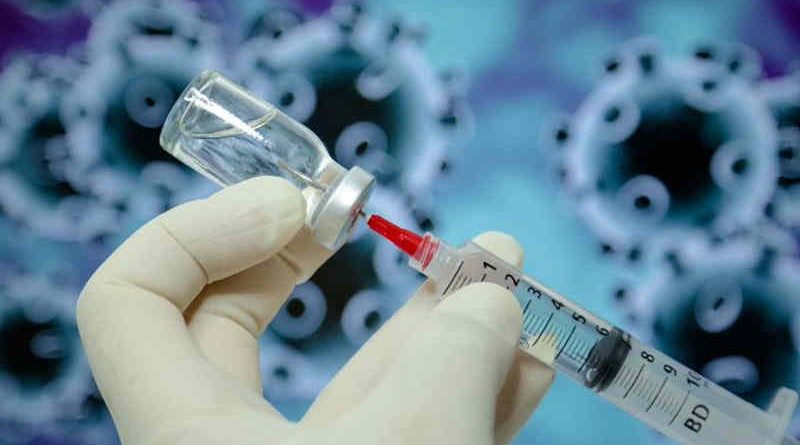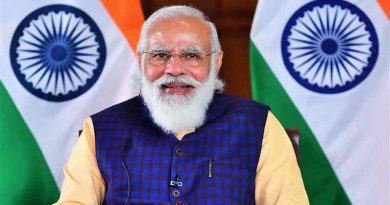Bleeding and Clotting Cases Reported After Covid Vaccination in India

Since the vaccination drives are terribly slow, new virus variants will keep emerging while there is no vaccine for them.
Bleeding and clotting cases following Covid vaccination in India are minuscule and in line with the expected number of diagnoses of these conditions in the country, a report submitted by the National AEFI (Adverse Event Following Immunization) Committee to the Ministry of Health & Family Welfare said.
According to a government statement issued today (May 17), alerts have been raised in some countries on post-vaccination “embolic and thrombotic events” on 11 March 2021 particularly with AstraZeneca-Oxford vaccine [Covishield in India]. A decision was taken to conduct an urgent in-depth analysis of the adverse events (AE) in India in the light of the global concerns.
It is largely believed that the vaccination exercise is not quite effective to contain the contagion in India. The vaccination data does not present the clear picture, as it does not tell us the number of people who have been infected after the vaccination and the number of people who got side effects or died after receiving the vaccine doses.
The data also does not inform about the effect of vaccines on the new virus variants. Since the vaccination drives are terribly slow, new virus variants will keep emerging while there is no vaccine for them. So, the virus in one form or another is going to persist. Moreover, at this stage, it is not possible to assess Covid-19 vaccine responses in people with immune deficits.
The National AEFI committee noted that as of 03 April 2021, 75,435,381 vaccine doses had been administered (Covishield – 68,650,819; Covaxin – 6,784,562). Of these, 65,944,106 were first doses and 9,491,275 second doses. Since the Covid-19 vaccination drive was initiated – more than 23,000 adverse events were reported through the CO-WIN platform reported from 684 of the 753 districts of the country. Of these, only 700 cases (@ 9.3 cases / million doses administered) were reported to be serious and severe in nature.
The AEFI Committee has completed an in-depth case review of 498 serious and severe events, of which 26 cases have been reported to be potential thromboembolic (formation of a clot in a blood vessel that might also break loose and carried by the blood stream to plug another vessel) events – following the administration of Covishield vaccine – with a reporting rate of 0.61 cases / million doses.
There were no potential thromboembolic events reported following administration of Covaxin vaccine, the government statement added. AEFI data in India showed that there is a very miniscule but definitive risk of thromboembolic events.
The reporting rate of these events in India is around 0.61 / million doses, which – according to the Indian government – is much lower than the 4 cases / million reported by the UK’s regulator Medical and Health Regulatory Authority (MHRA). Germany has reported 10 events per million doses.
It is important to know that thromboembolic events keep occurring in the general population as background and scientific literature suggests that this risk is almost 70 per cent less in persons of South and South East Asian descent in comparison to those from European descent.
India’s Ministry of Health and Family Welfare (MOHFW) is separately issuing advisories to healthcare workers and vaccine beneficiaries to encourage people to be aware of suspected thromboembolic symptoms occurring within 20 days after receiving any Covid-19 vaccine (particularly Covishield) and report preferably to the health facility where vaccine was administered. The symptoms may include:
- breathlessness;
- pain in chest;
- pain in limbs / pain on pressing limbs or swelling in limbs (arm or calf);
- multiple, pinhead size red spots or bruising of skin in an area beyond the injection site;
- persistent abdominal pain with or without vomiting;
- seizures in the absence of previous history of seizures with or without vomiting;
- severe and persistent headache with or without vomiting (in the absence of previous history of migraine or chronic headache);
- weakness/paralysis of limbs or any particular side or part of the body (including face);
- persistent vomiting without any obvious reason;
- blurred vision or pain in eyes or having double vision;
- change in mental status or having confusion or depressed level of consciousness
- Any other symptom or health condition which is of concern to the recipient or the family
The government claims that the Covishield vaccine continues to have a definite positive benefit risk profile with tremendous potential to prevent infections and reduce deaths due to Covid-19 across the world and in India. The MoHFW says it is continuously monitoring the safety of all Covid-19 vaccines and is promoting the reporting of suspected adverse events.





